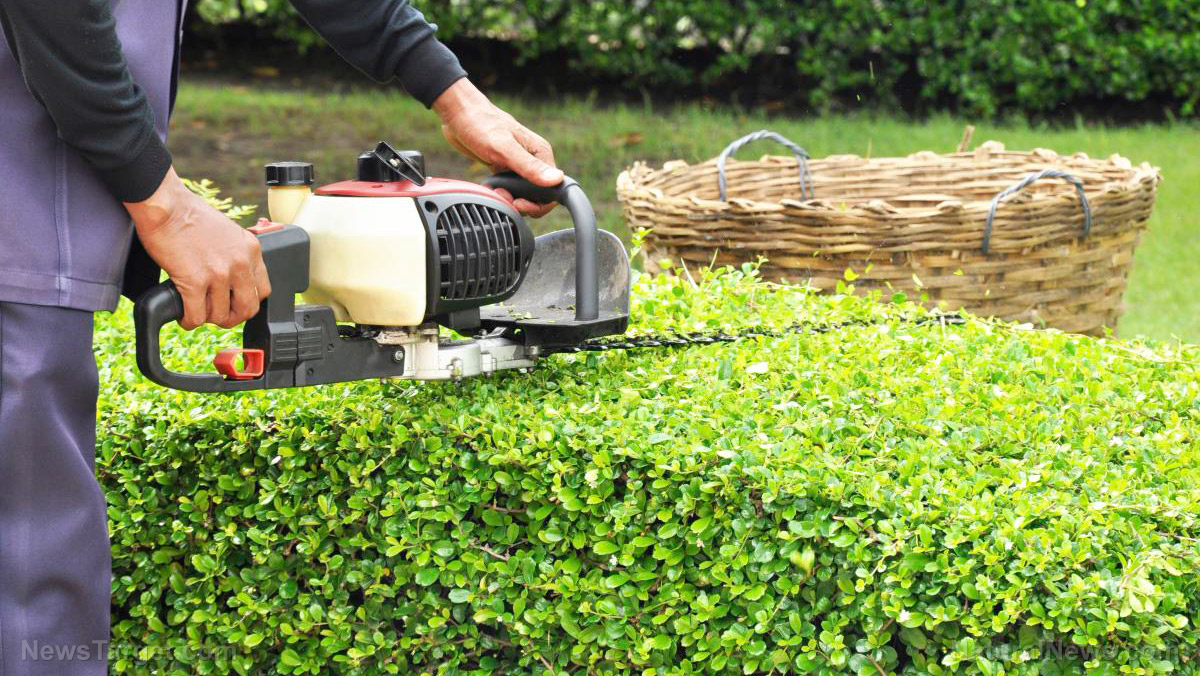
Making sure your homestead is protected from both natural disasters and crime is key to ensuring your safety when SHTF.
There are many ways to protect your home, and some tried-and-true methods include using sturdy fences and having good communication with your neighbors. (h/t to PreppersWill.com)
Homesteads are often located in rural areas that evoke an image of a peaceful, quiet scenery. However, crime still exists in rural areas, albeit at a lower rate compared to the city.

First layer of protection: Secure all possible entrances
Always follow the basic tips for securing your home and don't be complacent just because your homestead is located in a rural area. Unlike movies where homeowners can leave doors unlocked or "hide" keys in accessible areas, in real life, you need to be just as vigilant in the countryside.
Follow the tips below to secure all entrances in your property:
- Lock all doors and windows when they're not in use, even when you're at home in the morning and especially before you turn in for the night. Use deadbolt locks that are keyed both inside and out if you can.
- Immediately replace any damaged locks with tamper-proof products.
- Replace exterior doors that are thin or broken. Add additional support with a door barricade or security bar.
- Secure windows by adding window locks or bars.
- Never hide keys in predictable locations like under the doormat or in a flowerpot by the front door. Instead, leave an extra key with a neighbor you trust or use an unexpected hiding place. (Related: Survival 101: Stock up on essential supplies and fortify your home before TEOTWAWKI.)
- You should also take precautions with your cars to keep your home and property safe. If you own a car with a push-button start and the electronic key fob is in the vehicle, don't leave the key in the cupholder.
- Use dusk-to-dawn or motion-activated lighting as a deterrent. Leave a couple of lights on at night so thieves don't think you're not at home.
- Leave a porch light at all access points, barns, sheds and other outbuildings.
- Replace broken or outdated fixtures with automatic motion-sensor or dusk-to-dawn LEDs to illuminate access points without having to spend too much money.
You should also invest in a home security system, some of which are affordable, easy to install and come with reasonable monitoring costs. However, an alarm system is only effective if you use them consistently and properly, like door and window locks.
With technology like remote access, Wi-Fi-accessible doorbells, or CCTV digital recording systems, you have a verifiable, documentable deterrent that should be part of your home defense plans.

Second layer of protection: Use man-made and natural barriers
You can also secure your property by installing man-made barriers or using natural barriers like plants.
Install strategic gates and fencing or other barriers like ditches on your property. You can also plant a thick stand of trees or place foliage strategically around your home to restrict access.
Try the suggestions below if you want to fortify your property using natural barriers:
- Use thick stands of foliage, such as thorny varieties, as a natural deterrent. However, you should plant them away from access points.
- Don't let thieves use your landscape as convenient hiding places. Keep windows and doors clear of trees or shrubs where someone can hide. Trim branches of tall trees away from your house to prevent access to second-story windows.
- Trim hedges in front of your house to less than three feet so no one can hide behind them.
- Plant thorny or prickly shrubs like roses under windows to discourage even the most determined of intruders.
- Use thorny shrubs and bushes to create a natural barrier by forming a hedge planting them inside your fence to discourage trespassers. Grow a combination of plants like bamboo trees, holly bushes, or juniper.
- Alternatively, you can plant edible shrubs or bushes so you can also enjoy fresh fruit while fortifying your home. Consider planting blackthorn bushes, boysenberries, pomegranates, raspberries, or wild plums. Get the thorny varieties if using edible shrubs and bushes.
- If you live somewhere with a desert climate, plant prickly pear, a bushy cactus.
Use man-made barriers like fences, gates, or a wall to clearly mark the boundaries of your property.
Third layer of protection: Communication
It's easier to protect your community if you know you can rely on your neighbors.
If you're going on a long out-of-town trip, notify local law enforcement or neighbors you trust. Letting local law enforcement that you'll be gone for a while will also help increase awareness.
Before you go on vacation, provide a list of "keyholders" to your residence and phone numbers so law enforcement can access your property if SHTF. Incidents like house alarm-system activation or suspicious activity calls, whether real or false, can be resolved more easily if first responders have accurate homeowner information and contact phone numbers.
Use large, reflective signage with your house number near main roads so first responders in rural areas can easily identify address signage.

Benefits of the multi-layer approach
Other aspects of prepping, like situational awareness and the use of firearms for self-defense, can help improve your home security.
Instead of wasting time on social media, use your common sense and pay attention to changes or discrepancies in your environment. If you're outside buying groceries, focus on your surroundings not on your smartphones
Learn how to use a firearm so you can protect your property and yourself if forced to confront a trespasser. Keep your weapon within easy reach and secured in a lockbox or safe under your bed or in the nightstand.
If you are going to use a firearm to improve your home security, learn more about state and local laws about possession, concealed carry and lawful use of force. You should also learn how to use your chosen weapon well and responsibly to avoid any accidents.
The best way to protect your home and your loved ones is to follow simple rules: Lock your doors and windows, secure your perimeter using man-made or natural barriers and stay alert.
Sources include:
Please contact us for more information.





















